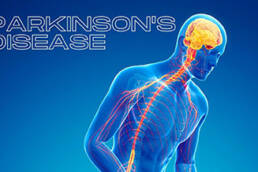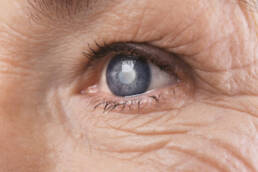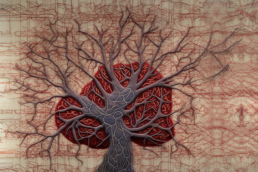Happiness has long been recognized as a critical part of health and well-being. The “pursuit of happiness” is even given as an inalienable right in the U.S. Declaration of Independence. So why is happiness so important? Happiness has been shown to predict positive outcomes in many different areas of life including mental well-being, physical health, and overall longevity. Positive emotions increase satisfaction with life. Happiness helps people build stronger coping skills. Happiness can be defined as a state of well-being and contentment, involving positive emotions and life satisfaction, as well as a sense of meaning and purpose. Happiness is a positive and pleasant emotion, ranging from contentment to intense joy. Moments of happiness may be triggered by positive life experiences or thoughts, but sometimes it may arise from no obvious cause. The level of happiness for longer periods of time is more strongly correlated with levels of life satisfaction and subjective well-being.
Our thoughts control our feelings, so anything we can do to help create positive thoughts will help us live a happier life. Positive thoughts and behaviors in our daily activities enrich our lives and create happiness.
As I’ve traveled around, there are times when I’ve felt pangs of homesickness. I’ve found that by starting conversations with people who I meet along the journey, such as the restaurant server, my spirits are immediately lifted. Not only do those pangs of loneliness go away, but I also then feel a connection to the place I’m at, which brings not just contentment, but joy. During these conversations, not only do I thank the server but I also share stories, as well as smiles. It is not just the smiles that are contagious, but also the happiness.
Practicing gratitude supports mental health because it combats the human negativity bias and refocuses our attention on positive experiences. Research has shown that regular gratitude practice strengthens relationships, boosts immunity, improves sleep quality, increases overall well-being, and reduces symptoms of anxiety and depression.
It is relationships with others that keep us happier and healthier throughout our life span. When it comes to achieving happiness being socially active with people is a strong avenue. For instance, when a friend crosses your mind, reach out right away with an invitation to engage and consider setting up standing social dates at regular intervals. Both persons will benefit from the friendship and achieve happiness. Having even just one brief interaction with a friend can increase happiness and decrease stress on a given day. And it doesn’t need to be face-to-face. Developing meaningful friendships is even more powerful but requires intimacy, vulnerability authenticity, and a willingness to reveal personal and intimate details about your life. Deeper friendships contribute to even more impactful life happiness.
What else can we do to achieve happiness? One thing we can do is to avoid living in the past, especially negative experiences or perceptions. Those who can remember more positive events from their past have better mental health and these wonderful memories improve mood and energy and a sense of well-being, making us feel happy.
Another approach is physical exercise and fitness. The impact of physical exercise on happiness and health is just as powerful as social interaction. Physical activity can help keep your thinking, learning, and judgment skills intact as you age. It also reduces your risk of depression and anxiety, and increases your ability to do everyday activities. Therefore, we all should stay active as much as we can which helps in creating more happiness.
Another very important behavior to facilitate happiness is laughter. This is sort of obvious but important. Laughter reduces the level of stress hormones like cortisol and epinephrine while increasing the level of pleasure hormones like dopamine and endorphins. Make it a priority to do at least one thing that makes you laugh daily and happiness results. Such things as reading or listening to funny performances by comedians or just with your friends sharing funny experiences. Laughter is a powerful medicine to create happiness.
In addition, people who physically hug others generally have a more positive mood than those who don’t, and they also feel less lonely. Hugging others clearly has an impact on our health and level of happiness as well.
Studies have shown that people who volunteer or perform acts of kindness may experience reductions in anxiety and depression, as well as a “helper’s high” that can improve mood, physical health, and even longevity. The holiday times are an excellent time to be helpful to others, especially those who are less fortunate. I make it a point to do something special during these times. An example was to distribute socks with a $2 bill in them to the homeless. Clearly, a good way to be happier is to be helpful and give to others.
If you want to find more happiness, start by finding more joy. Joy is how good we feel in the moment. It’s an intense, momentary experience of positive emotion which has been scientifically proven to improve productivity, relationships and cognition, all of which can add up to increased happiness. Happiness is an emotional state characterized by feelings of joy, satisfaction, contentment, and fulfillment.
Happy people feel the whole range of human emotions, which include anger, frustration, boredom, loneliness, and even sadness from time to time. But even when faced with negativity, we have an underlying sense of optimism that things will get better, that we can deal with what is happening, and that we will be able to feel happy again.
There are many things that we can do to cultivate happiness. Achieving goals that are focused on personal growth and community can help boost happiness. Focusing on practicing gratitude for the things we have and enjoying the process promotes happiness. Pay more attention to good things in our lives than bad things. Good social relationships are the strongest predictor of happiness. When we feel that we have a sense of purpose, we have a better well-being and feel more fulfilled and happier. Happiness has been shown to predict positive outcomes in many different areas of life including mental well-being, physical health, and overall longevity. What better way to “add life to years.”
Lawrence J. Weiss, Ph.D. is CEO of the Center for Healthy Aging. Dr. Weiss welcomes your comments on this column. Write to him at larryjweiss@gmail.com or c/o Center for Healthy Aging, 11 Fillmore Way, Reno, NV 89519.




























































